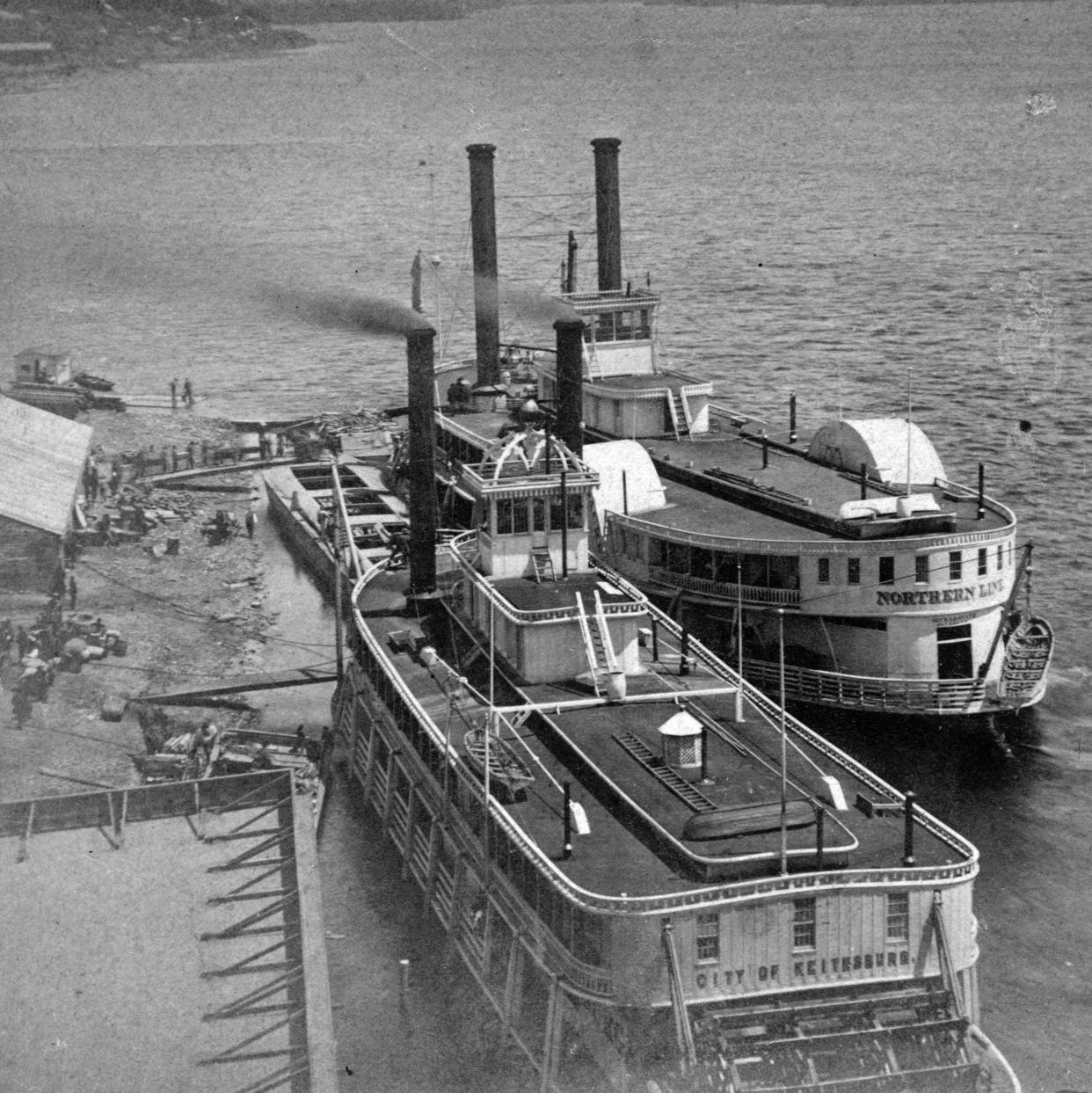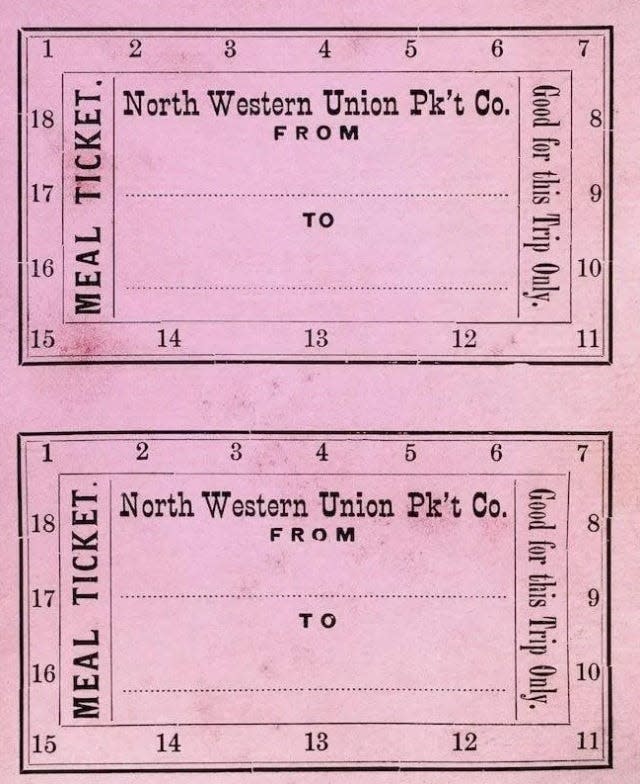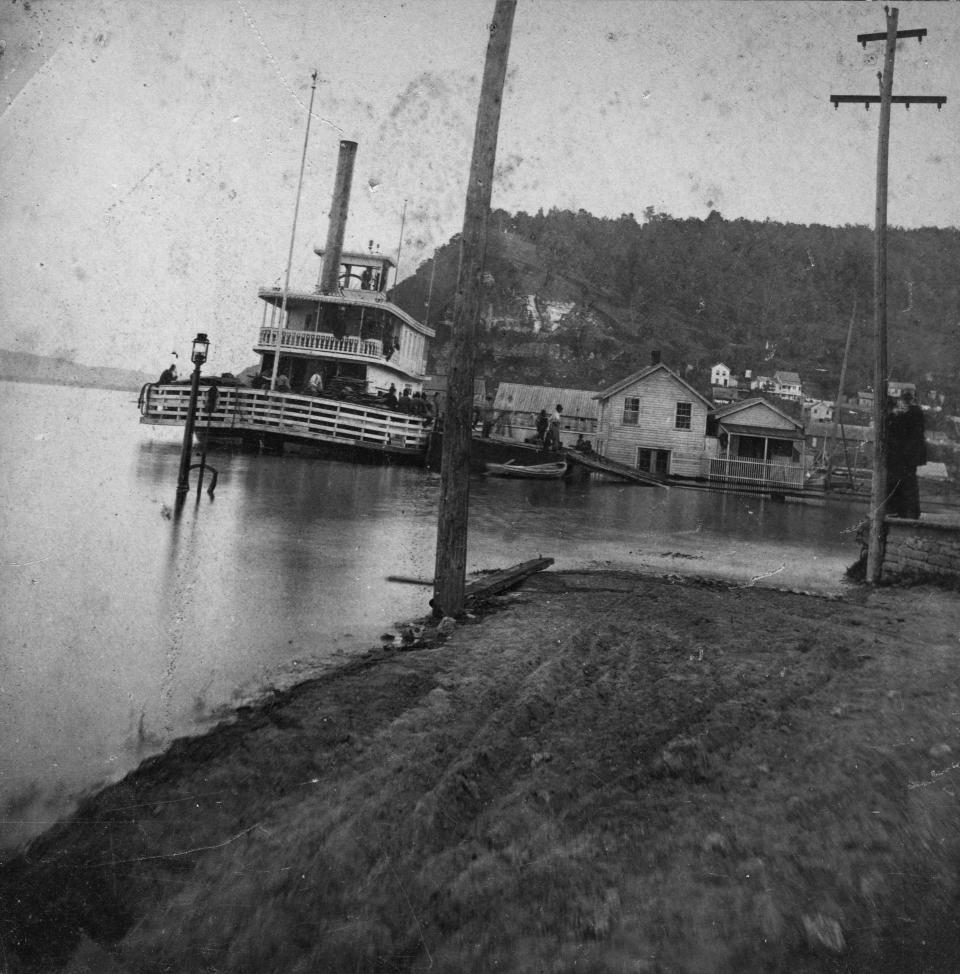An Iowan’s steamboat scuffle had ripple effects for civil rights

On Sept. 4, 1872, a young schoolteacher named Emma Coger boarded the steamboat S.S. Merrill in Keokuk. She asked to purchase stateroom passage to Quincy, Illinois, but the clerk refused and offered her a second-class ticket, with instructions that she should take her meals on the open-air deck or in the pantry. Coger refused the ticket.
“I said, ‘Sir, I am no servant and will not eat on the guards or pantry with the servants.’”
After repeated efforts to purchase a first-class ticket, Coger sought out a “gentleman” on deck. “I said, ‘Sir, will you do me a favor?' He said, ‘Certainly, Miss.” Coger gave him her money, and he bought the ticket.
At dinner, Coger took a seat at the ladies’ table, not in the pantry. The captain’s wife exclaimed, “Why, there is that negro” – to which Coger replied, “If I am a negro, Madam, I am as white as you are.”
What happened next led Emma Coger to file a lawsuit that still echoes through Iowa law today. Ordered to leave, Coger refused. When two crew members wrenched her up, her grip on the tablecloth sent dishes and dinner crashing to the floor. Force-marched to the door, Coger struggled with the captain, bloodying his nose.

Coger sued, winning in Keokuk as well as at the Iowa Supreme Court. Chief Justice Joseph Beck wrote, the “principle of equality is announced and secured by the very first words of our State constitution ... ‘All men are, by nature, free and equal.’”
In the 1890s, Homer Plessy and Daniel Desdunes brought anti-segregation lawsuits in Louisiana as part of an organized political effort. In 1872, two decades earlier, Emma Coger did the same. She put her body in harm’s way as part of an organized political action.
Recognizing that the end of slavery was not the end of injustice, African American men in Illinois called a convention in 1866. They would pursue equal rights “both at the ballot box and in the courts of justice.” In other words, they called for lawsuits – especially since they had no access, at that time, to the ballot box. Coger’s brother-in-law helped draft the convention’s eloquent demand for “equality ... before the bar of American law!”
Coger also had support from the Prince Hall Masons, an organization devoted to civil rights work. All four successful Iowa civil rights lawsuits between 1867 and 1875 were part of a campaign pressed by the Prince Hall Masons. The regional grand lodges met in Keokuk shortly before Coger boarded the Merrill, and it is likely they planned the lawsuit at that meeting.
Once she arrived home in Quincy, she hired the most prominent attorney in Keokuk, Daniel F. Miller. Only by drawing on her political network and their funds could a 20-year-old schoolteacher have hired such high-powered, sympathetic legal assistance in another state. She was not the first woman to sue a common carrier over race discrimination, but her suit was unusual for being planned in cooperation with organized men.

Coger’s legal legacy stretched far beyond her own lifetime. The attorneys in Brown v. Board of Education cited her case. In Iowa, Coger v. North Western Union Packet Company remains the bedrock underpinning civil rights. It is cited in Varnum v. Brien (2009), which protected same-sex marriage; in Gartner v. Iowa Dept. of Public Health (2013), which guaranteed a married lesbian couple’s right to list both parents’ names on a birth certificate; and in Planned Parenthood of the Heartland v. Reynolds (2018), which held that a 72-hour waiting period for a woman seeking an abortion violated the state constitution.
In claiming the freedom to travel, Emma Coger started down a path whose final destination she could not have imagined.
Sharon E. Wood is a professor of history at the University of Nebraska at Omaha.
March is Iowa History Month
To celebrate Iowa History Month, the Register will publish weekly essays from leading state historians.
This article originally appeared on Des Moines Register: An Iowan’s steamboat scuffle had ripple effects for civil rights

